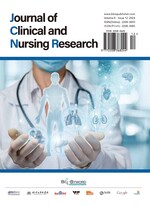Abstract
Ulcerative colitis (UC) is a chronic intestinal inflammatory disease with complex causes that are closely associated with environmental, genetic, and immune factors. However, the precise etiology and pathogenesis remain under investigation in clinical practice. Extensive research has demonstrated that cytokines play a pivotal role in the development, occurrence, and prognosis of UC, with an imbalance between pro-inflammatory cytokines and anti-inflammatory factors being a significant contributor. Given that UC is challenging to cure, therapeutic options such as hormones and aminosalicylic acid are commonly employed. While treatments including Western medicine, traditional Chinese medicine, and other approaches have shown some efficacy, substantial breakthroughs are still lacking. Cytokines, therefore, represent a critical focus in understanding the pathogenesis of UC. This review explores the therapeutic pathways of cytokines and their antagonists.
References
Kong W, Yan Y, Zhao P, et al., 2024, Analysis of Disease Activity, Histopathology and Cytokine Dynamic Changes in Mice with Chronic Ulcerative Colitis. Chin J Comp Med, 34(6): 18–27.
Yang Z, Liu J, Wu H, et al., 2023, Effect of Shugan Jianpi Huoxue Decoction on Intestinal Mucosal Barrier Function, Oxidative Stress Response and Th1/Th2 Cytokines in Patients with Ulcerative Colitis. Adv Mod Biomed, 23(9): 1647–1650.
Fan R, Jing Y, Zhang D, 2023, Study on the Effect and Mechanism of Curcumin in the Treatment of Ulcerative Colitis. Chin J Pharmacol Toxicol, 37(7): 550–551.
Ma X, Li Z, Wang Z, et al., 2024, Correlation Analysis of Serum Chemerin and Th9/Treg Cell Imbalance in Patients with Ulcerative Colitis. J Gastroenterol Hepatol, 33(2): 184–189.
Li Z, Yuan Y, 2024, Correlation Between Intestinal Flora Distribution and Serum TNF-α, IL-6 Levels in Patients with Ulcerative Colitis. Chin J Anorectal Dis, 44(8): 44–46.
Zhou Y, Jiang P, Li H, 2023, Study on the Correlation Between Inflammatory Factors and Myeloperoxidase in the Treatment of Ulcerative Colitis with Mesalazine Combined with Dandelion Polysaccharide. J Bengbu Med Coll, 48(2): 145–148.
Li X, Lai W, 2020, Analysis of Serum Inflammatory Cytokine Levels and Intestinal Flora Concentration in Patients with Ulcerative Colitis Infected with Helicobacter pylori. Chin J Prev Med, 21(9): 995–998.
Ye J, Zhu M, Liu C, 2021, Relationship Between Intestinal Flora Disturbance and Th17/Treg Balance and Related Cytokines in Patients with Ulcerative Colitis. China Med Herald, 18(16): 86–90.
Liu S, Wang F, 2020, Relationship Between Intestinal Flora Disturbance and Immune Balance of Th17/Treg and Its Secretion of Inflammatory Cytokines in Patients with Ulcerative Colitis. Mod Med, 48(7): 862–867.
Ye H, Hu S, 2020, Changes and Significance of Th22 and Th17 Cells and Their Cytokines in Peripheral Blood of Patients with Ulcerative Colitis. Chin J Health Insp, 30(17): 2130–2132.
Dai P, 2021, Comparison of Infliximab and Azathioprine in the Treatment of Refractory Inflammatory Bowel Disease. Contemp Med Treat, 19(6): 102–103.
Deji Z, Yang P, Zhang L, et al., 2022, Comparison of Short-Term Efficacy and Clinical Outcome Between Cyclosporine and Infliximab in the Treatment of Refractory Ulcerative Colitis. J Tongji Univ (Med Ed), 43(6): 799–804.
Yang J, Dang X, 2022, Comparison of the Efficacy and Safety of Tofacitinib and Infliximab in the Treatment of Inflammatory Bowel Disease: An Indirect Meta-Analysis. J Gastroenterol Hepatol, 31(12): 1404–1413.
Shen Y, Wang J, Li L, 2024, Relationship Between Serum Tim-3, Gal-9 Levels and Th1/Th2, Th17/Treg Cytokine Balance in Patients with Inflammatory Bowel Disease. Shandong Pharm, 64(20): 63–66.
Lu X, Zhao T, Cheng H, et al., 2022, Therapeutic Effect of Mesenchymal Stem Cells Overexpressing Interleukin-10 on Inflammatory Bowel Disease. Chin J Biochem Mol Biol, 38(9): 1202–1212.
Xu Y, Su S, 2024, Clinical Significance of Changes in Serum Biochemical Indicators, Blood Routine and Coagulation Function in Patients with Inflammatory Bowel Disease. Adv Clin Med, 14(5): 661–668.
Shi Y, Yang Y, Shen M, et al., 2022, Correlation Analysis of miRNA-10a Expression and Serum TNF-α and IL-6 Levels in Patients with Inflammatory Bowel Disease in Active and Remission Stages. Chin J Integr Tradit Chin West Med Digestion, 30(8): 579–584.
Sun Q, Liu X, Wang L, et al., 2024, Correlation Between Serum 25-Hydroxyvitamin D Level and the Degree of Inflammatory Response in Children with Inflammatory Bowel Disease. Chin J Clinicians, 52(5): 603–606.
Zhao Z, Wu Y, Liu Y, et al., 2023, Observation on the Structure of Inflammatory Bowel Disease Cell Model with Overexpression of SLC5A8 Gene and the Expression Changes of IL-8 and TGF-β1. Shandong Pharm, 63(32): 30–33.
Duan Y, 2023, Study on the Application of Serum IL-2, IL-6, IL-8, TNF-α, CRP in the Early Diagnosis and Activity Evaluation of IBD in Children. China Med Innov, 20(30): 5–9.
